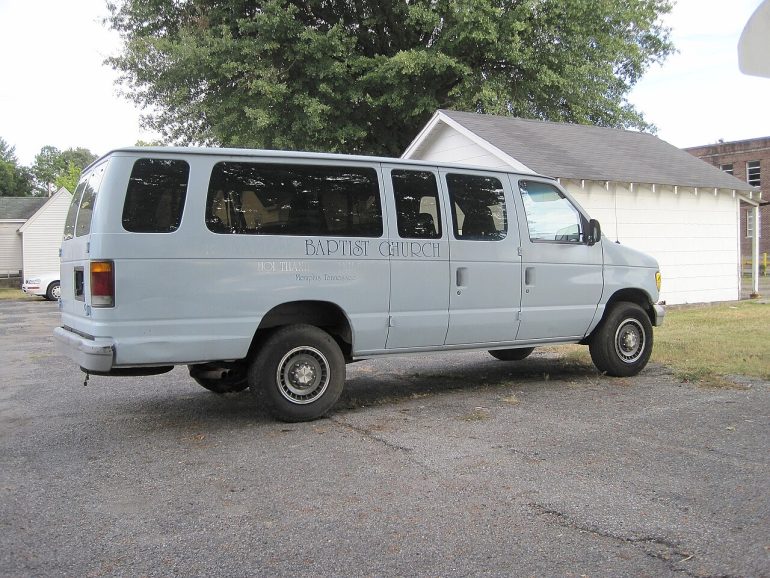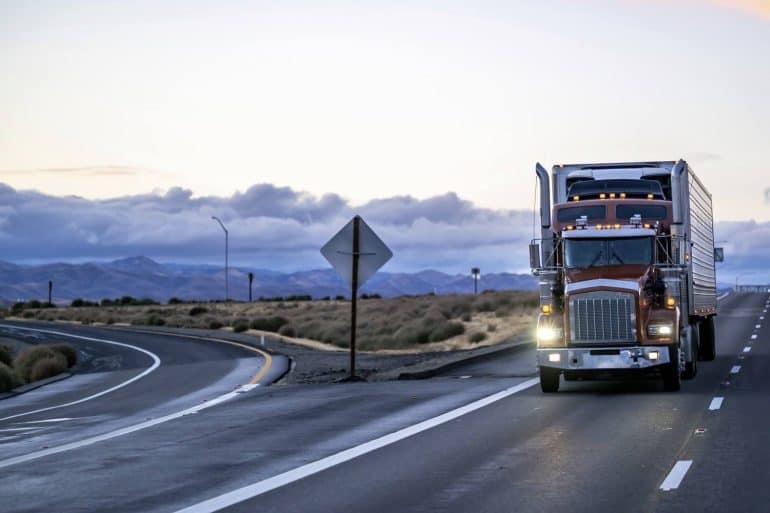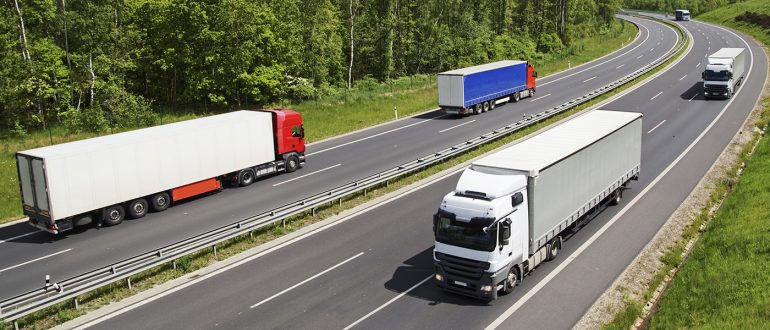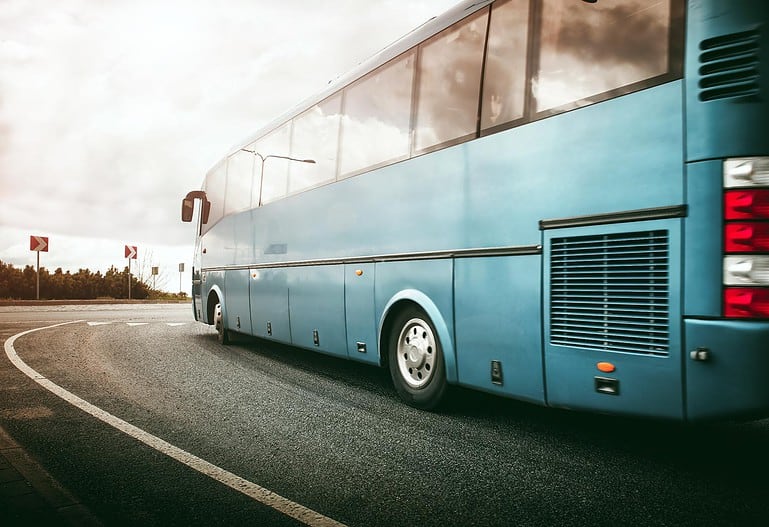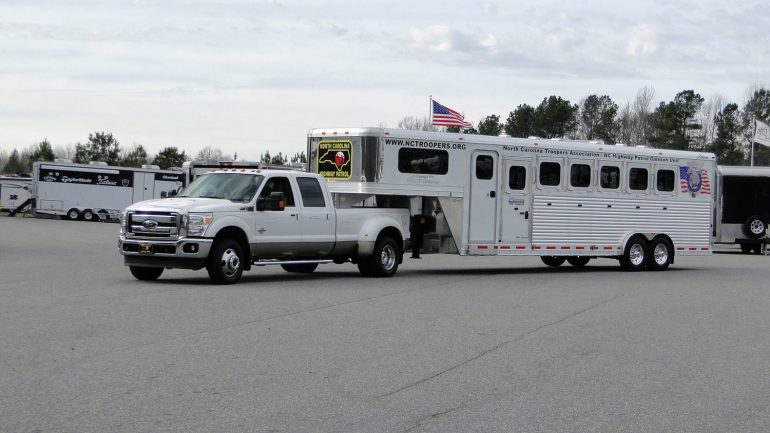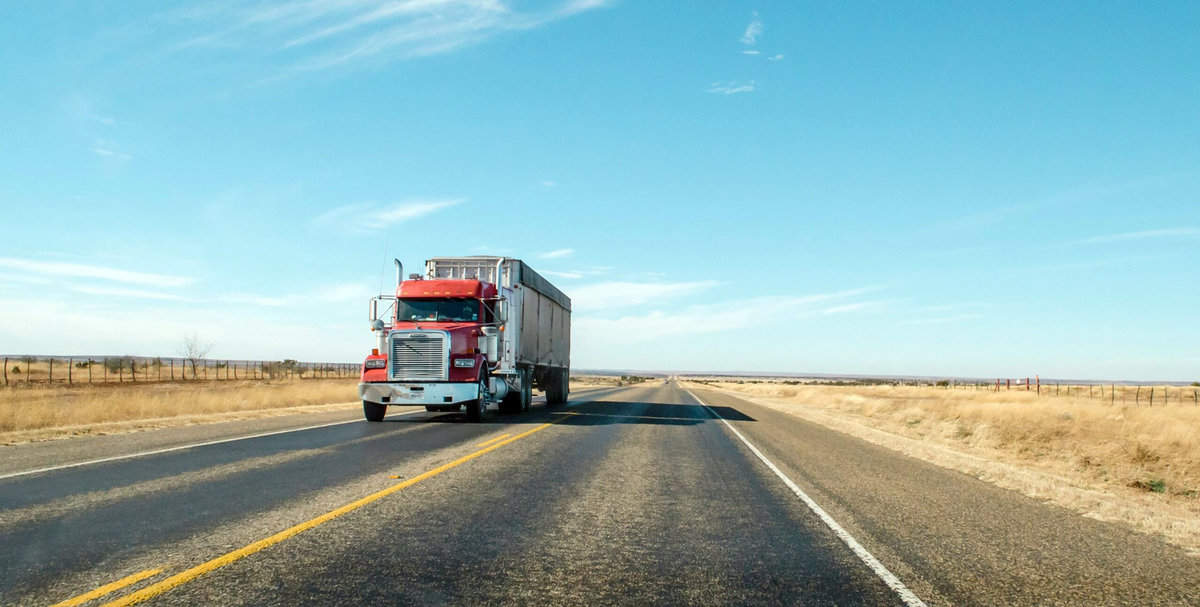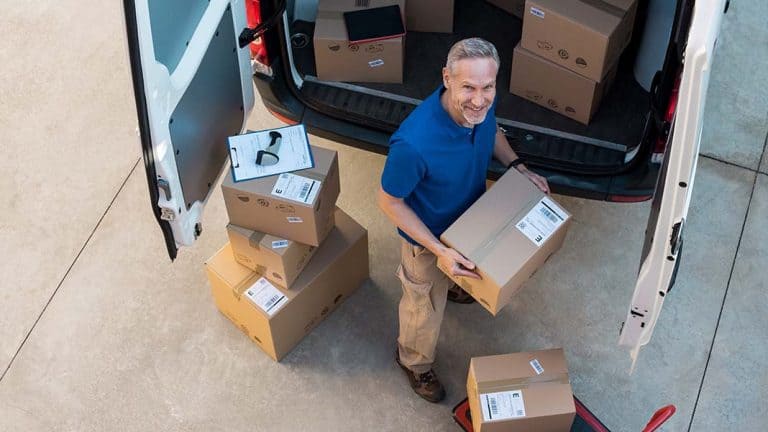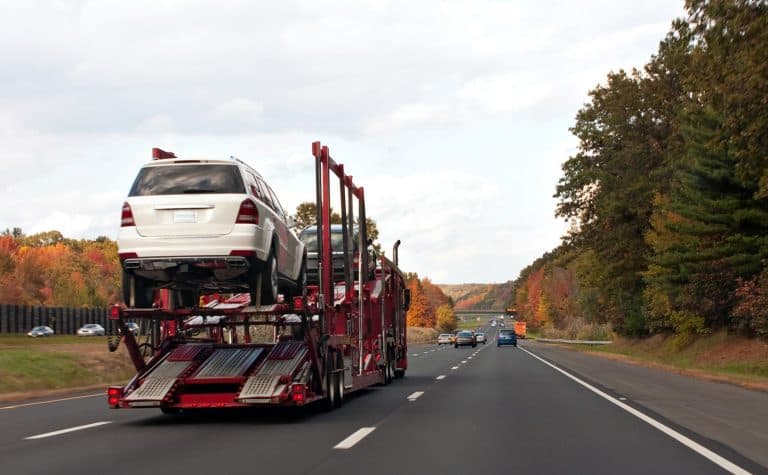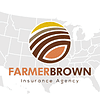Commercial Truck Insurance Quotes
We help truck drivers & owner operators find the right trucking insurance policies.

What Are the Legal Requirements for Commercial Truck Insurance Coverage?
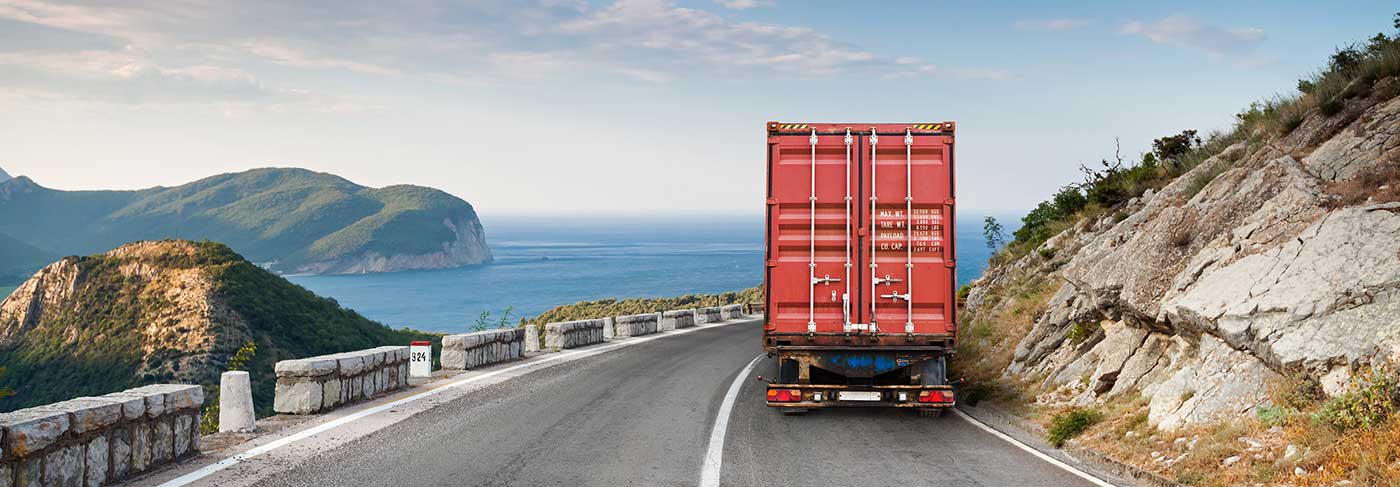
First things first. Let’s talk about how much insurance you need to legally operate a commercial truck on the highway.
These requirements are set and published by the Federal Motor Carrier Safety Administration (FMCSA) in the United States. You can view them right here on the official FMCSA website.
All truckers need to be covered by public liability insurance. This type of insurance covers bodily injury, property damage, and environmental restoration. Specifically, this coverage pays the cost of damages to other people and other people’s property.
Your insurance is supposed to cover the full extent of the damage of any accident for which you are at fault. In a commercial truck, that can be a lot of damage—more than you would likely be liable for if you were driving a smaller vehicle.
Public Liability Insurance Requirements
The minimum coverage you need depends on the type of freight that you will be hauling:
- Non-hazardous freight moved in a truck which weighs under 10,001 pounds: $300,000.
- Freight moved in a truck which weighs 10,001 pounds or more: $750,000-$5,000,000. The minimum depends on the type of freight. For oil, it is $1,000,000. For other hazardous materials, it is $5,000,000.
While these are the legal minimum requirements, if you are an OTR trucker, you may find that the carrier you are working for requires you to carry more insurance – even if just required for a short term. $1,000,000 is a typical requirement.
In some cases, you might also need to purchase other types of insurance. For example:
- Cargo insurance of $5,000 per vehicle and $10,000 per occurrence for household goods carriers and freight forwarders.
- Bobtail insurance. You need this if you drive an 18-wheeler without the trailer.
I will get into these and other types of truck drivers insurance shortly.
Given what commercial trucking insurance needs to cover, you can guess that it can be quite expensive. If you shop around however, you can find some good rates, and the longer you drive, the lower your rates will be.
Key Takeaway: To legally drive a commercial truck on the road, you need public liability insurance which meets minimum federal requirements as set forth by the FMCSA. This insurance provides coverage for injuries and damages to other people and property. Other types of coverage may also be necessary depending on what you are driving and what you are hauling.
Commercial Trucking Insurance Coverage Options
Driver Requirements & Needs Vary With Each Custom Policy.
With our commercial trucking insurance quote you can get your truck authority certificate quickly.
-
Church Van Insurance Coverage
Essential Transportation Coverage for Religious Organizations Church van insurance is a type of commercial auto coverage made for religious organizations. Maybe your church has a single van for Sunday school, or maybe you’ve…
-
No Down Payment Insurance Options
Getting started in the trucking industry can be expensive, and finding ways to save money matters. No down payment commercial truck insurance gives owner-operators and businesses a way to get the coverage they…
-
Insurance For Freight Brokers
Freight broker insurance is an essential form of protection for those operating in the logistics and transportation industry, providing a safety net against a variety of risks associated with the movement of goods….
-
Insurance For Party Buses & Limos
A party bus business involves a lot of moving parts (literally): vehicles, staff, passengers, equipment and refreshments. With so many moving parts, a lot can potentially go wrong. In order to protect your…
-
What is BIPD Insurance in Trucking?
In the trucking industry, having adequate insurance coverage is essential for the protection of our business as well as to comply with federal requirements. One of the critical types of insurance coverage that…
-
General Liability Insurance for Truckers
General liability insurance is crucial for truckers as they face multiple risks and challenges in their daily operations. The trucking industry is exposed to a wide array of potential accidents, injuries, and damage…
-
Bus Insurance 101
There are over 65,000 public buses in operation across the United States. Bus insurance helps protect both the operator and passengers in the event that the bus is involved in an accident. Whether…
-
Roadside Masters Driver Membership Program
Roadside Masters is a commercial vehicle emergency service provider that offers 24/7/365 roadside assistance to its customers across the United States and Canada. The company was founded in 2009, specializing in heavy-duty towing…
-
Dually Truck Insurance Requirements
Duallies are versatile trucks that can haul a wide range of materials, including autos, construction supplies and anything that can fit in the truck bed or can be towed. If you want the…

Commercial Auto Insurance For Different Types Of Commercial Truckers
No vehicles spend more time on the road than semi-trucks. Millions of highway miles are logged each year as important freight is moved across North America. The transportation industry is one of the cornerstones of the US economy and semi-truck drivers are the backbone.
As a semi-truck driver, you spend long hours behind the wheel to make a living, hours that carry you miles away from the comforts of home and family. You make sure your rig is in good running shape, you know your inspections are done correctly and kept up to date, and you know that when you buckle up to leave home you fully expect to be returning to your family safe and sound at the end of the run.
Besides the fact that truck insurance is required for owner-operators, it is an absolute necessity for the protection of the driver as well as the transportation companies that they work for.
Semi-truck insurance is a little different from other types of insurance. It covers a wider range of policy types and options.
The insurance needs of a trucker can be very complex.
For instance, some drivers may be in need of ‘leased operator insurance’. They have a need, like all drivers, to protect their livelihood. And if they’re leased to a motor carrier, then they’ll be in need of coverage that coincides with their lease agreement.
The trick in this situation is in knowing that, while many employers will offer to provide the truck driver with this coverage, if the driver would shop around, the odds are he/she could find it cheaper by purchasing it for themselves. Plus they would have more flexibility for customizing their policy to suit their particular needs. Whether that be tractor-trailer coverage, motor cargo policy, or specialized policies.
Most carriers are going to provide the largest part of the driver’s liability insurance. But it’s a good idea for the driver to buy some of their own damage insurance and ‘non-trucking’ liability coverages. This ensures coverage even if they should be driving the truck on their own time.
What Type of Truck Drivers & Trucking Companies Do We Insure?
From Amazon drivers and couriers to owner-operator hotshot drivers.
We connect you with the right insurance agency and big savings.
Commercial Vehicle Insurance Products For The Trucking Industry
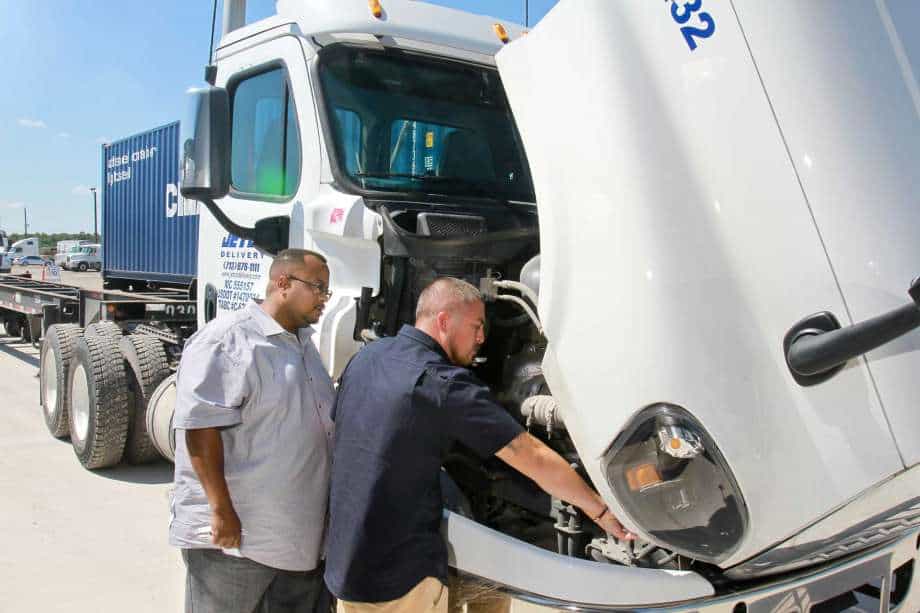
We have already talked about primary public liability insurance. Now I want to discuss a few other types of commercial trucking insurance you might need.
General Liability (GL) Insurance
This is one of the most important owner-operator insurance requirements. Basically, there are a lot of things that can go wrong which have nothing to do with business accidents on the road. GL insurance gives your business protection for these situations.
For example, what if a trucker makes the wrong delivery? What if a visitor to your office trips over your doorstep and breaks his arm? What if one of your drivers gets into a fight at a truck stop? All of these situations can cost you money.
Most GL insurance policies have limits of $1,000,000 per occurrence, but you can find cheaper policies with $300,000 limits. Pricier policies are available as well.
Key Takeaway: For owner-operators, GL insurance is a must. It covers a wide span of costly damages and injuries which have nothing to do with road accidents.
Physical Damage Insurance
This is a policy to pay for repairs or replacement in case your truck gets wrecked. Remember, this isn’t offered as part of your public liability protection. That covers other vehicles involved in your crash, but not yours.
There are two different types of physical damage insurance you can buy:
- Collision: If your truck collides with another vehicle or with an object, collision damage will cover costs.
- Comprehensive: If your truck is vandalized, burned, or stolen, comprehensive protection has you covered.
You can assume in most cases that the monthly cost of this insurance will be around $2-3 x each thousand it is worth. So if your vehicle is worth $50,000, that would be 50×2 = $100 at the lower end.
Key Takeaway: Physical damage insurance pays for damages to your truck.
Motor Truck Cargo Insurance
I mentioned this briefly earlier. In commercial trucking, you may be hauling goods and resources which have significant value. To protect those goods should they be damaged in a wreck, vandalized or stolen, you need to purchase motor truck cargo insurance. Sometimes this coverage may even pay for items which you lose.
Of course, the items which are damaged, destroyed, stolen, or lost will cannot actually be replaced, but you can use the money you are paid through your policy to reimburse your customers. The limits for motor truck cargo policies usually range between $10,000 and $100,000. You can find policies with limits which exceed $100,000 as well.
If you are purchasing motor truck cargo insurance, make sure that:
- The particular types of items you want to cover are going to be covered. Some products are easy to cover, but with others, you may need to do some calling around. A lot of companies refuse to cover items like jewelry, liquor or tobacco. The reason is that these are objects which tend to attract thieves, so they are seen as a liability.
- If you sometimes haul products outside your usual line, the insurance provider will be willing to work with you to cover them.
- You are getting the amount of coverage you need. If you insure more than the value you are hauling, you will waste money, but if you under-insure, you may end up losing a lot of money should something go wrong.
- Your policy will transfer to another truck if necessary.
- The policy will cover debris removal if your cargo winds up scattered on the road following a crash.
You also should find out whether there are other types of damage covered by the policy. What happens if there is a water leak in the roof of your truck which gets your goods wet, ruining them? And what if you are hauling refrigerated merchandise, but the equipment malfunctions and the food spoils? Will the policy pay, or will you be stuck eating the loss?
Key Takeaway: Motor truck cargo insurance covers the cost of damages to your actual freight. You can use this to reimburse customers.
Bobtail Insurance
This is another type of commercial auto coverage which I mentioned earlier. Say you have dropped off your cargo and detached your trailer. You are now driving the truck on its own, known as “deadheading.” Suppose you get into an accident, injuring another person or damaging someone else’s property. A regular policy won’t cover this, but bobtail insurance will.
You can get a bobtail insurance policy with a limit of $1,000,000 for anywhere from around $35-$60 per month.
Key Takeaway: Bobtail insurance keeps you covered while you are deadheading.
Non-Trucking Liability Insurance
This type of insurance coverage is regularly mixed up with bobtail insurance, but it is something entirely different. It covers you in case of damage or injury to another party while you are driving the truck for reasons not involving hauling freight.
You might wonder why you need this, but think about it. There are a lot of situations where you might be driving the truck without the goal of getting cargo to a destination. What if you need to take it to the wash? What if you need to take it to a repair shop? Non-trucking liability insurance will cover you should something go wrong along the way.
Key Takeaway: Non-trucking liability insurance covers you while you are driving your truck for non-delivery-related reasons.
Trailer Interchange Insurance
This type of insurance covers you during the course of a trailer interchange agreement. This is a formal contract where you agree to take a trailer you do not own from another truck and deliver the goods.
If during the course of the delivery the other company’s trailer is damaged, you would be liable for that damage if you did not have trailer interchange insurance. If you do however, the policy will pay out. Types of damage covered include loading and unloading damage, collision damage, as well as damage from fire, vandalism, or theft.
Trailer interchange insurance can range widely in cost, depending on a variety of factors. It could be as cheap as $100 a year, or as expensive as $150 a year. Limits usually range from $20,000-$30,000, and there is typically a deductible of around $1,000.
Key Takeaway: Trailer interchange insurance covers damages to a trailer you don’t own if you borrow it to make a delivery. It only applies if there is a formal contract in place.
Non-Owned Trailer Physical Damage Coverage
In a lot of cases, if you agree to take a load to its final destination for another trucking company, you may have no formal written agreement. In this case, you cannot qualify for trailer interchange insurance as described previously. Instead, what you end up getting is non-owned trailer physical damage coverage.
These types of coverage are very similar. These are the two key distinctions:
- Trailer interchange insurance requires a written contract. Non-owned trailer physical damage coverage does not.
- With a non-owned trailer coverage policy, you are only covered if the trailer is attached to a covered truck. If the two are detached at any point and the trailer is damaged, the policy will not pay out. This is not the case with trailer interchange insurance, which will cover you either way. So the non-owned trailer coverage policy is the less comprehensive of the two.
Key Takeaway: Non-owned trailer physical damage coverage is almost just like trailer interchange insurance, but it is less comprehensive, and you can get it even when there is no formal contract.
Medical Payments Insurance
While public liability insurance covers medical payments in situations where other people are injured, it does not cover you or your employees or passengers. For that, you need medical payments insurance.
If you get medical payments insurance, and you, an employee, or a passenger is injured in a collision, the policy will pay out. Accidental death is covered as well.
Do you need this coverage? Maybe, maybe not. It depends on the other types of insurance you have (workers’ comp, personal health insurance, etc.), and whether those types of insurance are adequate for your needs or leave gaps. If you regularly take on passengers, you probably should get medical payments insurance.
Key Takeaway: Medical payments insurance covers injuries to yourself, your employees, or passengers in your trucks.
Uninsured Motorist Coverage
In theory, if another vehicle hits yours and that person is at fault, his or her insurance carrier is supposed to pay for the damages. But sometimes the other vehicle’s driver does not carry insurance, in which case there is nobody to pick up the bill—unless you purchase uninsured motorist coverage.
In some states like Maryland and New York, you legally have to purchase uninsured motorist coverage to drive. In others, it is optional, but you should probably get it anyway since there are a lot of uninsured and underinsured drivers on the roads.
Key Takeaway: If your truck is hit by an uninsured or underinsured driver, an uninsured motorist coverage policy will pay for damages.
Workers’ Compensation
If you are an owner-operator, you need to purchase workers’ compensation. With this type of insurance, you are covered if your employee is injured during the course of business. It is a legal mandate, and if you do not purchase it, you will have two problems on your hands. First of all, you will be liable for the full cost of any injuries. Secondly, you will probably owe penalties to the state.
Workers’ compensation is not cheap. In fact, in some states (like California) it is absurdly expensive. You could find yourself paying more than $600 a month in workers’ compensation premiums for each of your drivers. Over the course of a year, that can really add up.
Of course, if you skip out on workers’ compensation and one of your employees is severely injured, it could wipe out your business. So it is worth it to bite the bullet and pay the high premiums to stay safe and compliant.
Key Takeaway: Owner-operators must purchase workers’ compensation coverage for employees. It can be very pricey, so call around for a variety of quotes before you select a company.
Occupational Accident Insurance
As a trucker, you need to get this type of insurance if you are an independent contractor as opposed to an employee. If you get a 1099, you are a contractor. This means you do not qualify for coverage under workers’ compensation. Should you be injured on the job, workers’ compensation will do nothing to cover you. Owner-operators also need occupational accident insurance since they likewise are not covered through workers’ compensation.
Occupational accident coverage works very much like workers’ compensation. If you are injured while trucking, it will help cover the cost of your medical expenses. If you are disabled by your injury, it will also pay out a stipend which you can use to cover expenses over the short or long term as needed. Accidental death coverage is provided as well.
Like workers’ compensation, occupational accident coverage can be very expensive, so you should shop around quite a bit before you settle on a policy.
Key Takeaway: Occupational accident coverage is like workers’ compensation for independent contractors and owner-operators.
Contingent Liability Insurance
It is common for companies to misclassify employees as independent contractors. Sometimes this is done for nefarious reasons—to deny employees the benefits they deserve. Quite often, though, it is a simple honest mistake.
If as an owner-operator you do make the mistake of misclassifying an employee as an independent contractor and then that contractor gets injured during work, he or she may sue you. The reason is that the employee should have been receiving workers’ compensation, but never received that benefit due to the misclassification.
If that happens, contingent liability insurance will help to cover you. Note that if you are careful about classifying your employees and you provide adequate levels of coverage, you should be able to avoid lawsuits and the need for contingent liability insurance.
Key Takeaway: If you fail to adequately cover an employee through workers’ compensation, you may need contingent liability insurance.
Commercial Truck Umbrella Coverage
While you will probably have quite a few different types of insurance as discussed above, there are bound to be gaps in your coverage. In some cases, you may also have policy limits which are insufficient to cover damages.
Umbrella coverage, also known as “excess liability insurance,” can help you to bridge these gaps and inadequacies. If you end up getting sued for more than your policies will pay, that money has to come form somewhere. If you do not have umbrella coverage, it is likely that your assets will be liquidated to pay out the rest of the judgment. But if you have umbrella coverage, then your excess liability insurance may be enough to save your assets and pay the rest of the amount.
You can buy umbrella insurance in units of $1,000,000. Policies can get to be quite large, totalling as much as $50,000,000. Policies cost around $2500 annually at the lower end. As you might expect, policies with higher limits can be quite hefty in terms of premiums.
You might wonder if you really need this kind of coverage as an owner-operator. I am here to tell you that you do. It is not at all uncommon for a freight carrier to be sued to the tune of millions of dollars. In cases where such judgments are awarded, umbrella coverage can mean the difference between staying in business or going bankrupt.
Key Takeaway: Even with all the types of insurance coverage discussed above, it is common for lawsuits to go way over the combined policy limits. Umbrella insurance can pay out in these situations, protecting your valuable assets.
What Are Some of the Top Commercial Auto Insurance Carriers?
There are a ton of different commercial insurance carriers out there to look into to help you protect your business.
Some of the big names include:
Best Commercial Truck Insurance Carriers
From the largest carriers in North America to regional-only providers.
We connect you to the right commercial truck insurance coverage for your needs.
- 1st Guard Corporation
- Acadia Insurance
- Ace Group
- AIG
- Arch Insurance Company
- ARI
- Amerisafe
- Auto Owners Insurance Co
- ATTICRRG
- BBT Insurance Services
- Berkshire Hathaway
- Canal Insurance Company
- Carolina Casualty Insurance Co
- Chubb group of Insurance Cos
- Century Insurance Group
- CNA
- Colony Insurance
- Continental Western Group
- Coverx Specialty
- Eastern Atlantic Ins. Co
- Essex Insurance Company
- Fairmont Specialty
- Farmers Truck Insurance Exchange
- Fireman’s Fund Insurance Co
- Gateway Insurance Company
- Grange Insurance
- Great American Insurance Group
- Great West Casualty Company
- Hallmark Insurance Company
- Hanover Insurance Group
- Harco
- The Hartford
- Hudson Insurance Group
- Infinity
- Insurance House
- Interstate Insurance Management
- Johnson and Johnson
- Lancer Insurance Company
- Lexington Insurance
- Maxum
- Markel Insurance
- Mercury Insurance Group
- National American Ins Co
- National Indemnity
- National Interstate Insurance Co
- Nat’l Truck Underwriting Mgrs.
- Northland Insurance
- Ohio Casualty
- One Beacon
- OOIDA
- PMA Insurance
- Progressive Commercial
- QBE
- Republic Group
- RLI
- Sagamore Insurance Co
- Seneca
- Scottsdale Insurance Co
- Sentry Insurance
- Star Insurance Company
- State National Insurance Co
- Stratford Insurance Company
- Sutter Insurance Company
- Swett and Crawford
- Tower Ins. Co. of New York
- TransProtection Service Co
- Transguard
- Travelers
- U.S. Specialty Insurance Co
- Western World
- Wilshire Insurance Company
- Zurich
Key Takeaway: While it may seem overwhelming to have so many companies to search through, the good news is that you will find great deals with a lot of these carriers. You just need to be willing to shop around.
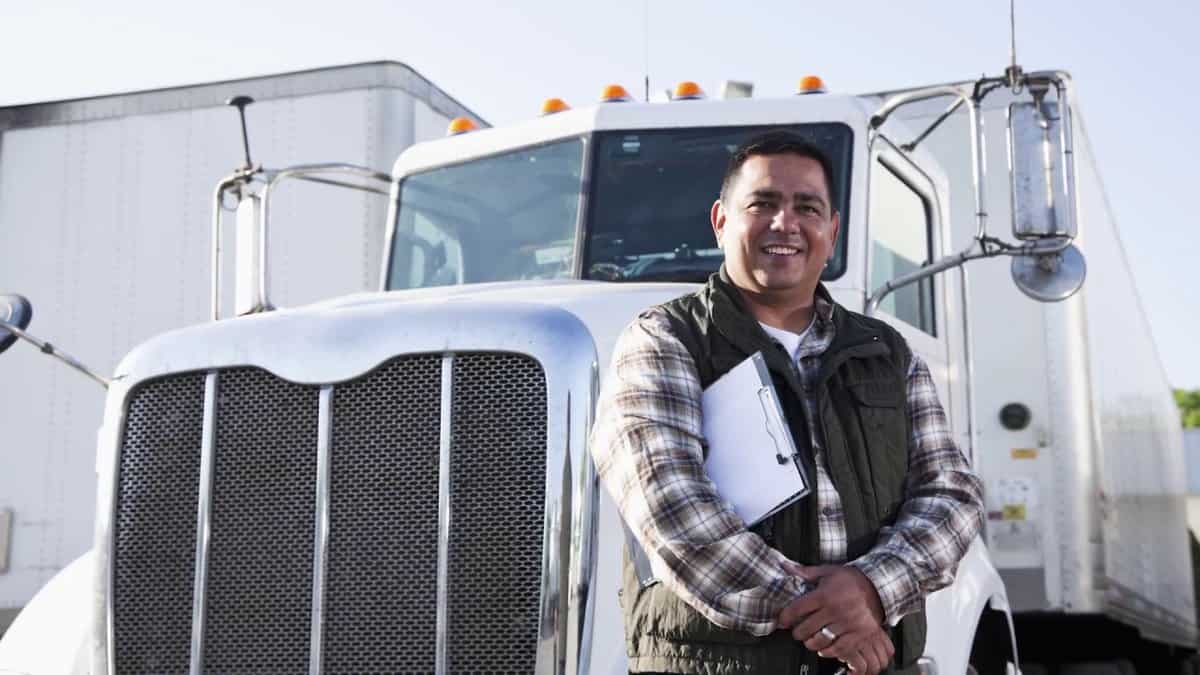
Finding Cheap Truck Insurance Policies That Cover All The Bases
With commercial insurance, like most other things, the cheapest option isn’t always the best.
While it’s true that insurance is a major cost for most trucking businesses, it only takes one accident for that insurance to be the difference between continued success and possible bankruptcy or criminal charges. Therefore it is of the utmost importance to get the right insurance policy for your individual requirements.
For you as a CDL driver, commercial truck insurance will be one of your biggest annual expenses. But it’s also the most necessary.
Financial devastation can occur from one incident of being uninsured or underinsured.
It’s not always the insurance that’s cheapest that is right for your business. Understanding just how much truck insurance coverage you need, and exactly what types of specialized policies you may require, will go a long way to easing your mind about what could happen if an accident occurred.
There are a number of options for semi-truck insurance products. We help you navigate the complexities of the insurance industry and find the policy that works best for you- both by coverage needs and financial strength.
Specialized Jobs Coverage
The types of truck insurance which are listed above are all very general. They apply to pretty much everyone and are important regardless of the specific industry you are in.
But there are some niche jobs which require specialized insurance in addition to the types of coverage listed previously. Here are a few examples.
Dump Trucks
If you operate a dump truck as an owner operator, you will need dump truck insurance. This type of insurance falls under the commercial vehicle insurance category. In order to operate legally, you must have liability and other types of coverage for your truck. Dump trucks are heavy-duty vehicles that can cause some serious damage in an accident. Having enough liability coverage is absolutely critical, but you will also need other coverages.
Livestock Hauling
Let’s say you are in charge of transporting livestock. Livestock is not like other cargo. All kinds of things can go wrong which you would never need to worry about with other freight. Animals can be killed or maimed. The top deck could collapse. They could come down with an infection. In an accident, the animals could escape. This could lead to secondary accidents.
This is why there is livestock coverage you can buy, including broad and limited policies to protect you if animals are maimed or killed. You can also purchase insurance which provides coverage after transit, so that the livestock is still protected once it has been unloaded. Removing dead animals is expensive as well, so carcass removal insurance is also good to buy.
Livestock insurance policies for truckers usually cost between $6,000-$13,000 per year. Exactly how much depends on the nature of your trailer, the types of animals you are hauling, your deductible, and more.
Reefer / Refrigerated Truck Insurance
Another special case is when you are hauling refrigerated goods. Once again, this is a situation where there are potential liabilities which are specific to your job. If your reefer unit suffers a mechanical failure during transit, all of your food could spoil.
Another issue involves shippers who don’t see a problem sending out food which is on the verge of expiration. If you get to your final destination and the receiving party discovers the food has spoiled, you could end up liable for it.
Refrigerated truck insurance usually includes standard liability coverage plus some extra reefer coverage. The reefer coverage will (usually) pay out if the food spoils because of either damage to the reefer from a collision or mechanical failure. Some policies may also protect you in situations where the food simply expires.
Note that there are a few types of products which are often excluded from reefer policies. These include frozen food, meat products, seafood, pharmaceuticals and tobacco. Read through the list of exclusions to make sure that you are not buying a policy which fails to cover your cargo.
Steel Hauling
If you haul steel, you will need the standard types of insurance that I have already gone over, but you may need some additional insurance as well which is relevant to your job.
Steel haulers use specialized equipment to secure freight. This equipment can be very expensive, and if it is damaged, you could be out quite a lot of money. There is insurance you can buy to protect it however, known as “ramp, chain, tarp, and binder coverage.” Debris removal coverage is also a smart purchase if you are a steel hauler.
Whether you are a steel hauler or you transport livestock, refrigerated goods, hazardous materials, agricultural produce, oil, logs, or anything else, always make sure to think about the unique situations which you may encounter and what that means as far as potential liabilities. This will ensure that you purchase all the types of insurance coverage which you need.
Tanker Trucks
If you drive a tanker truck, along with the basic types of coverage, you should consider adding cargo insurance, pollution liability, debris removal, and specified peril coverage. For the specified peril coverage, fire is a good option.
Key Takeaway: Depending on your specialized trucking operation, you may need additional types of coverage.
Commercial Truck Insurance Cost FAQ
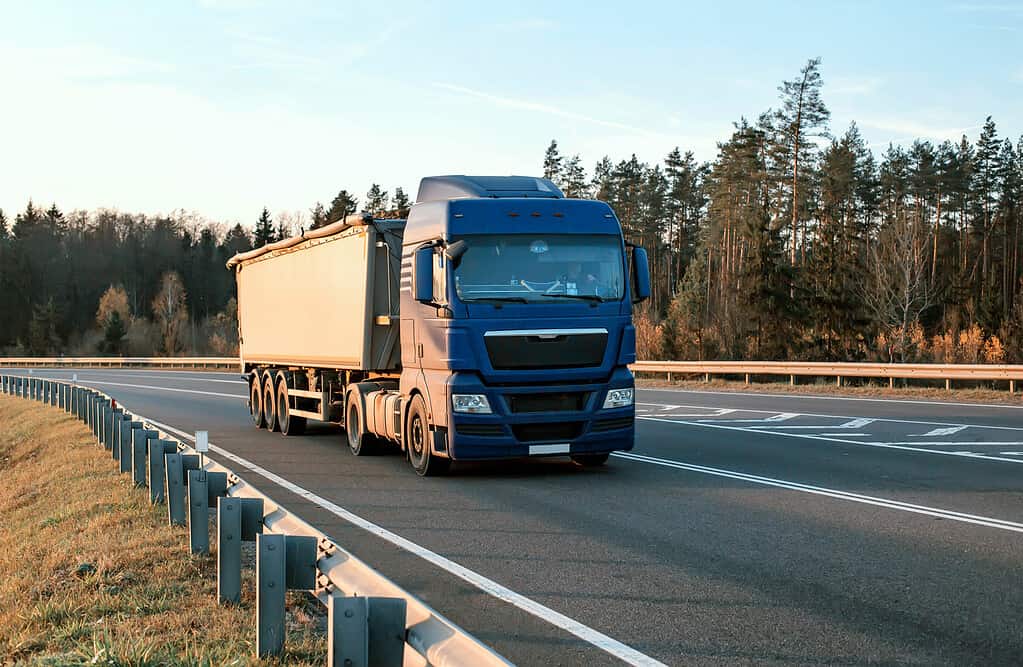
Q: I am an OTR truck driver. Do I need to buy all of these types of coverage, or just some of them?
A: Some of these types of insurance are really only relevant to owner-operators, so no, you do not need all of them. You are not going to need to worry about lawsuits from contractors for example.
Q: I am a new trucker. Will the cost of my truck liability insurance always be this high?
A: No, it should go down over time, assuming you drive carefully. With a clean driving record and no collisions, you will develop a track record as a safe driver. As you develop more experience, this will also reduce your perceived risk profile. That means that in the future, your insurance companies may be willing to offer you some breaks on rates. Work on keeping your credit score high (or raising it); this may also make a difference in the future.
Remember, now and again, it is a smart idea to shop around again just to see if there are any companies willing to offer you lower rates. There is no reason you ever need to settle. You may get the best deal on the market today, but a few years from now, there could be something else out there which is superior.
Q: What is “secondary” liability insurance?
A: This refers to any type of insurance which isn’t primary liability insurance. Your primary liability insurance is your public liability insurance. This is the insurance that the FMCSA requires that you purchase in order to protect others and their property (along with the environment).
Secondary liability insurance includes other types of insurance like motor truck cargo insurance, non trucking liability, bobtail insurance, and so on. Remember, even though these are not required by the FMCSA, they may be essential in order to protect yourself and others on the road.
Q: What do I need at an absolute minimum to get my authority and tags?
A: You need primary liability insurance to get your authority. For most truckers, this starts at $750,000. That being said, there are a lot of shippers which will not load you unless you have at least $1,000,000 in coverage.
As to your tags, once again, you just need primary liability insurance. If you are leasing to a motor carrier, you will go through them to get your auto insurance policy, but if you are operating on your own, you will take out a policy in your own name.
Q: What is actual cash value vs. the stated limit, and which one matters when I am buying insurance?
A: That is a good question. Let’s break it down.
With the actual cash value method of determining the value of a truck (or any other equipment), you provide a schedule of your equipment along with estimated values for each unit to the insurance carrier. But if an actual claim is made, the insurance claim adjustor checks the market values for those items on the date of their loss. After you pay the deductible, the cost of the damage or loss is paid in full. There are no limits. You receive whatever the equipment is worth.
With the stated amount method (also called stated limit), you provide an estimate of the value of the equipment at the start of the policy. Once again, if you make a claim, the adjustor looks at what the equipment is worth on the market.
The difference here is that the carrier will compare the amount you listed to the amount the adjustor finds, and then make a payout based on the lower of the two. So if you mistakenly overvalued the equipment, the adjustor’s finding will stand. If on the other hand you undervalued the equipment, your mistake will cost you, because the carrier will use your stated amount, not the true market value.
Pay close attention to the method your carrier uses before you sign on a policy and provide your estimates. If you go with a stated amount policy, make sure your estimates are as accurate as possible.
Q: If my truck is parked, do I need to insure it against physical damage?
A: If you are in a tight spot financially, in theory you can drop the policy until you are ready to get the vehicle back on the road. That being said, your carrier probably will not appreciate it, and if you are getting a discount for multiple auto insurance policies, you might lose it.
The other reason you may want to consider hanging onto the physical damage insurance is that it covers far more than just damage from collisions. Your vehicle could be vandalized while it is sitting around unused. It might also be damaged by hail or fire. If this should happen while your property damage coverage is lapsed, you will have to pay the full cost out of pocket.
Q: What are the key differences between workers’ compensation and occupational accident insurance?
- Workers’ compensation provides coverage to employees. If you have employees working under you, purchasing this coverage for them is legally mandated in the majority of states. It is quite pricey, especially in California. Workers’ comp benefits are fixed; they are stipulated by law and are the same for every employee.
- Occupational accident insurance is designed to cover independent contractors. Owner-operators can also purchase it for themselves. It is not a legal mandate, and costs less than workers’ compensation. The benefits are not fixed; they can vary from one motor carrier to the next. The same is true for the limits and the deductibles.
There are a few states—like Oklahoma and Texas—which do not require owner-operators to purchase workers’ compensation. In these states, you have the option of covering everyone with occupational accident insurance, whether they are contractors or employees.
Q: If I am operating under my own authority, do I have to buy bobtail insurance?
A: If you own the truck and you have primary auto liability insurance under your name or that of your company, you do not need to buy bobtail insurance.
Q: How do I get roadside assistance and/or a tow?
A: This may be covered as part of a broader policy, or it may be an add-on you need to purchase separately. Needless to say, in a pinch it can save you a lot of time, money and hassle, so it is well worth it.
Q: Is there a way I can keep my hazmat truck insurance rates from getting ridiculously high?
A: Naturally it can be hard to find affordable insurance rates with hazmat hauling—it is one of the most dangerous types of hauling around. That being the case, the best thing you can do is follow the Federal Hazardous Materials Regulations with great care so that you do not end up with violations on your record. The most common one is the “Package not secure in vehicle” one—Violation 177.834A. The more violations you have, the higher your insurance rates are going to be.
Q: How can I be sure that I am getting the best rates on business insurance?
A: There is only one way to do this, and that is to do your homework and shop around to find out what trucking business insurance rates are available. Otherwise, you may miss out on some outstanding opportunities to save on transportation auto insurance coverage.


